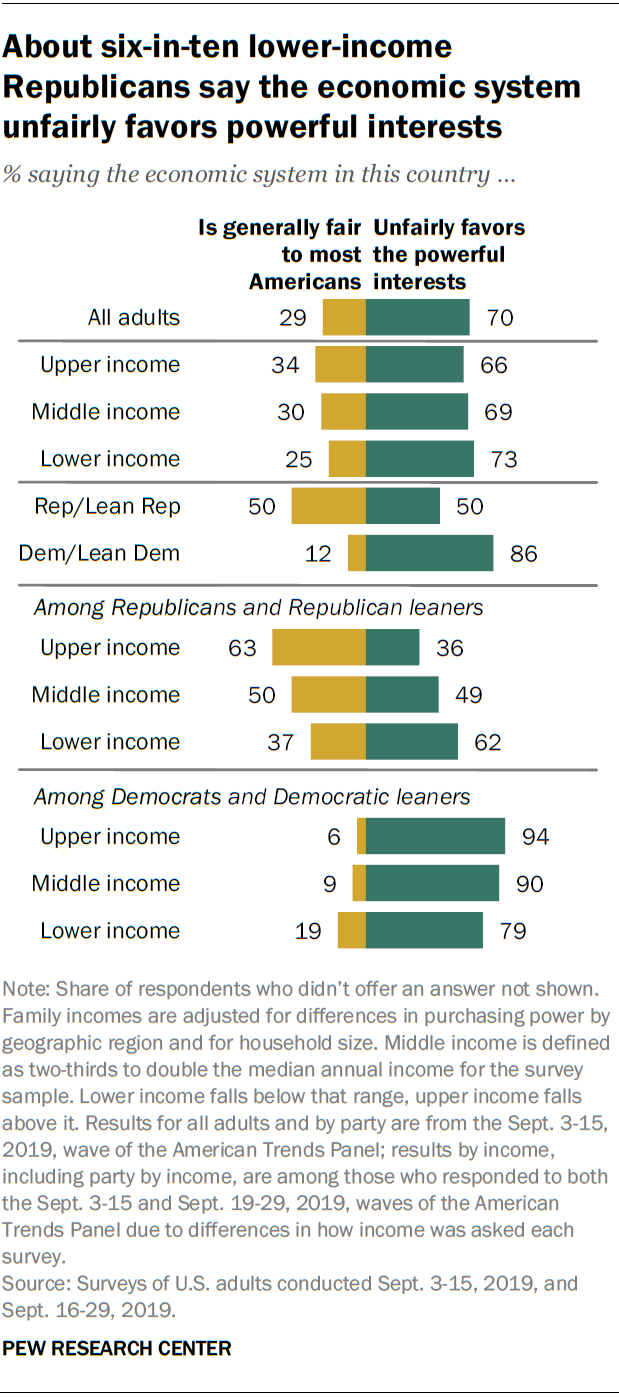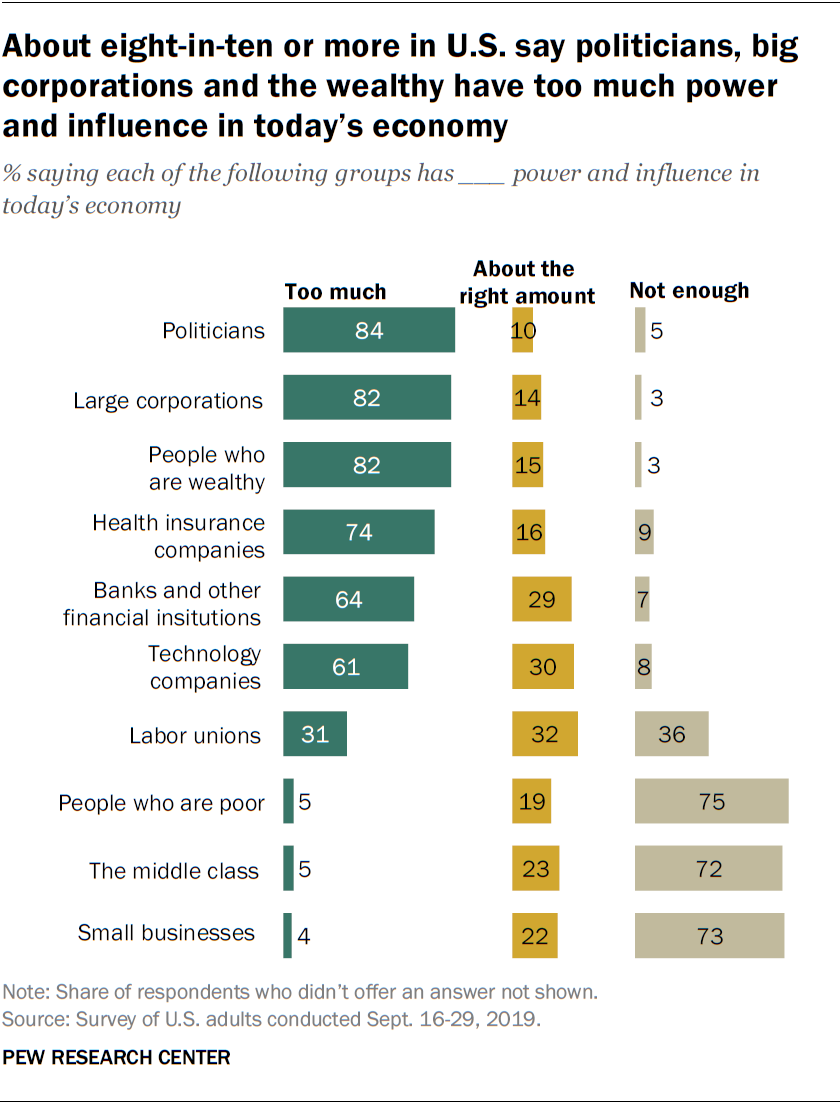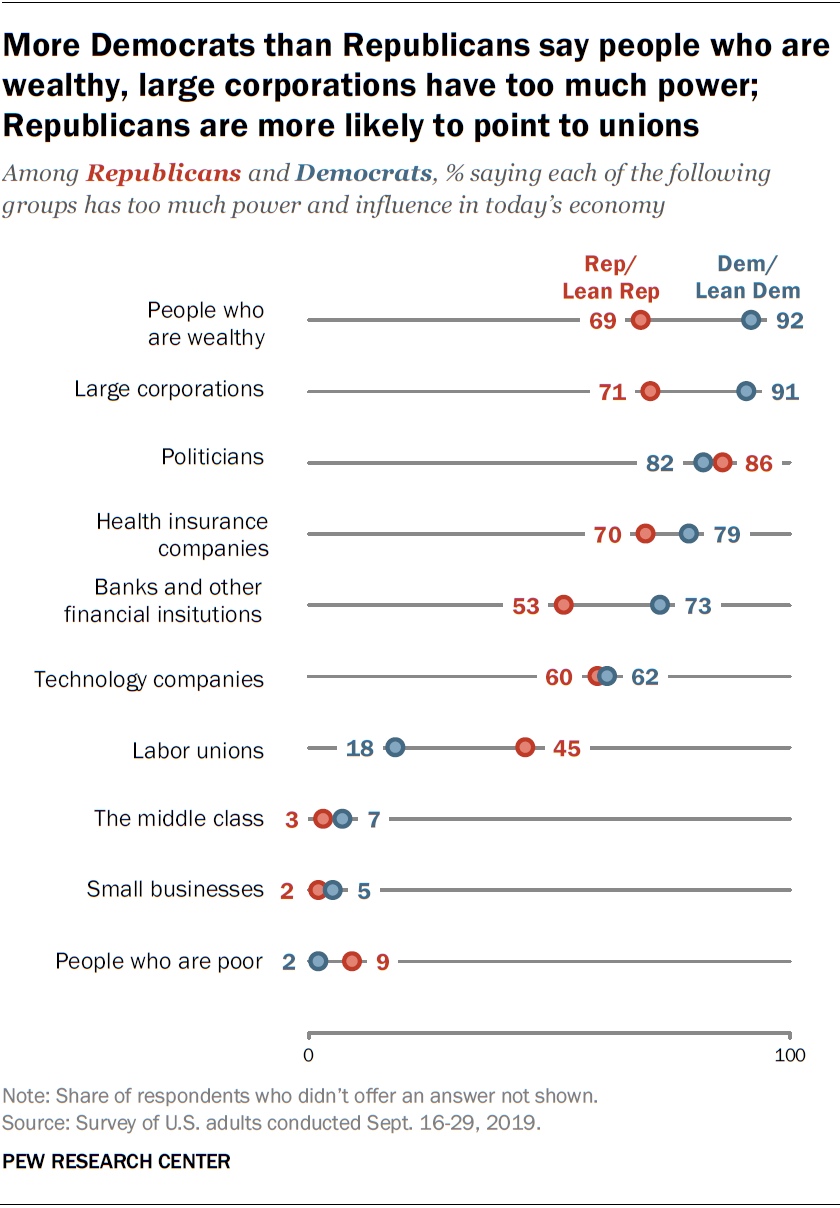Above Photo: Sustainable Economies/Flickr
 The notion that the U.S. economy is “rigged” to benefit the wealthy and special interests was a major rallying cry in the 2016 presidential election and is already resurfacing in the 2020 race.
The notion that the U.S. economy is “rigged” to benefit the wealthy and special interests was a major rallying cry in the 2016 presidential election and is already resurfacing in the 2020 race.
This message is likely to resonate with many Americans. Seven-in-ten U.S. adults say the economic system in their country unfairly favors powerful interests, compared with less than a third who say the system is generally fair to most Americans. Wide majorities of Americans also say politicians, large corporations and people who are wealthy have too much power and influence in today’s economy.
These findings are part of a larger Pew Research Center survey on economic inequality. The survey finds, among other things, that most Americans believe there is too much inequality in the United States, with a majority of those who hold this view saying that major changes to the economic system are needed in order to address inequality.
Across income groups, Americans tend to agree that the economic system unfairly favors powerful interests. Two-thirds of upper-income adults (66%) say this, as do 69% of middle- and 73% of lower-income adults. No more than about a third in each income group say the economic system is generally fair to most Americans.
How we did this
There is a partisan gap on this question, however. Republicans and independents who lean to the Republican Party are evenly divided, with half saying the economic system is generally fair and half saying it favors powerful interests. Among Democrats and Democratic leaners, the vast majority (86%) say the system unfairly favors powerful interests, while only 12% say the system is fair.
Republicans’ views differ significantly by income tier. Lower-income Republicans are far less likely than their higher-income GOP counterparts to say the economic system is generally fair (37% vs. 63%).
 Among Democrats, large majorities in all three income groups say the economic system unfairly favors powerful interests: 94% of upper-income Democrats and 90% of middle-income Democrats say this, as do 79% of lower-income Democrats.
Among Democrats, large majorities in all three income groups say the economic system unfairly favors powerful interests: 94% of upper-income Democrats and 90% of middle-income Democrats say this, as do 79% of lower-income Democrats.
Among Americans overall, there is widespread agreement around which groups have too much power in today’s economy. About eight-in-ten or more adults say politicians (84%), large corporations (82%) and wealthy people (82%) have too much power and influence. About three-quarters (74%) say health insurance companies have too much power, and majorities say the same about banks and other financial institutions (64%) and technology companies (61%).
Upper-, middle- and lower-income adults are largely in agreement about the degree of influence these groups have. For example, 81% of upper-income adults say politicians have too much power and influence, as do 86% of middle- and 82% of lower-income adults. And large majorities across the three income groups say large corporations and people who are wealthy have too much power and influence.
 There is some common ground across parties on this question. For example, large majorities of Republicans (86%) and Democrats (82%) say politicians have too much power and influence in the economy.
There is some common ground across parties on this question. For example, large majorities of Republicans (86%) and Democrats (82%) say politicians have too much power and influence in the economy.
On other groups, partisans differ somewhat. Democrats are more likely than Republicans to say that large corporations, wealthy people and financial institutions have too much power. Republicans, in turn, are much more likely than Democrats to say labor unions have too much power.
Some differences also exist within the party coalitions. Lower-income Republicans (79%) are more likely than middle-income (68%) and upper-income Republicans (58%) to say that people who are wealthy have too much power in today’s society. A similar pattern applies when it comes to views of large corporations.
Among Democrats, those with higher incomes are more likely than lower-income Democrats to say that banks and other financial institutions have too much power (82% vs. 64%).
When it comes to who has too little power and influence in today’s economy, three groups stand out for Americans: people who are poor (75% say this), small businesses (73%) and the middle class (72%). Democrats are much more likely than Republicans to say poor people have too little influence (89% vs. 56%) and to say the middle class has too little influence (76% vs. 67%). Democrats and Republicans are largely in agreement when it comes to small businesses.
Views on the influence of these three groups are fairly consistent across income tiers.


